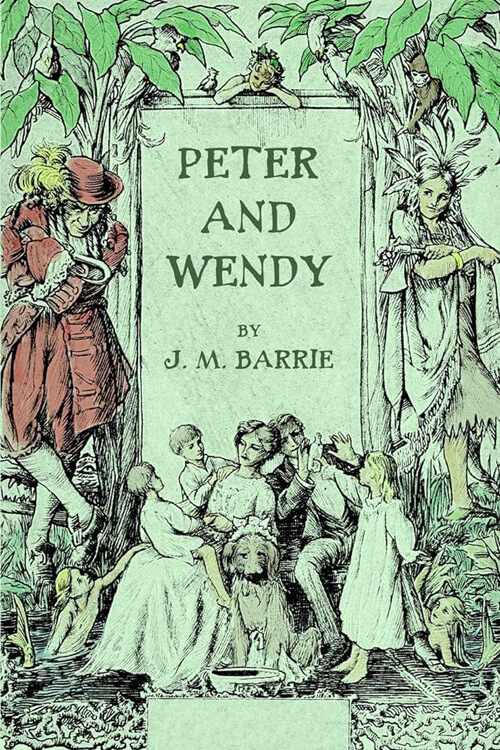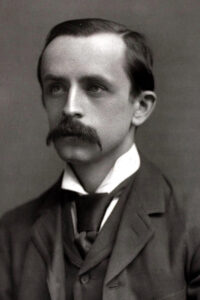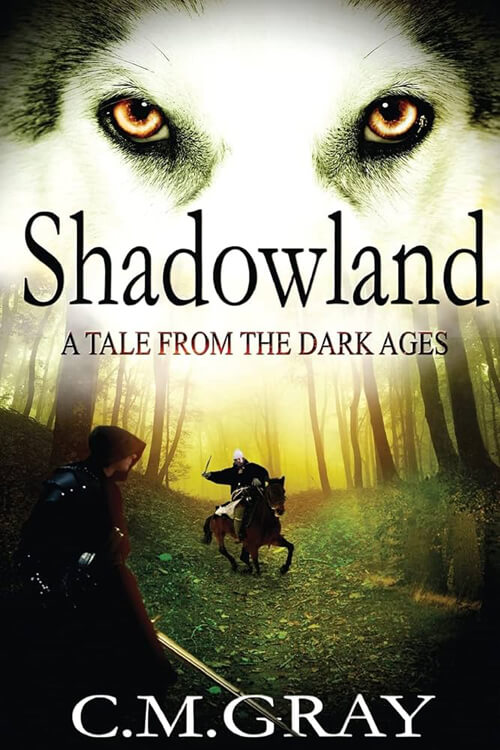
Peter and Wendy
All children, except one, grow up. They soon know that they will grow up, and the way Wendy knew was this. One day when she was two years old she was playing in a garden, and she plucked another flower and ran with it to her mother. I suppose she must have looked rather delightful, for Mrs. Darling put her hand to her heart and cried, ‘Oh, why can’t you remain like this forever!’ This was all that passed between them on the subject, but henceforth Wendy knew that she must grow up. You always know after you are two. Two is the beginning of the end.
Of course, they lived at 14, and until Wendy came her mother was the chief one. She was a lovely lady, with a romantic mind and such a sweet mocking mouth. Her romantic mind was like the tiny boxes, one within the other, that come from the puzzling East, however many you discover there is always one more; and her sweet mocking mouth had one kiss on it that Wendy could never get, though there it was, perfectly conspicuous in the right-hand corner.
The way Mr. Darling won her was this: the many gentlemen who had been boys when she was a girl discovered simultaneously that they loved her, and they all ran to her house to propose to her except Mr. Darling, who took a cab and nipped in first, and so he got her. He got all of her, except the innermost box and the kiss. He never knew about the box, and in time he gave up trying for the kiss. Wendy thought Napoleon could have got it, but I can picture him trying, and then going off in a passion, slamming the door.
Mr. Darling used to boast to Wendy that her mother not only loved him but respected him. He was one of those deep ones who knew about stocks and shares. Of course, no one really knows, but he quite seemed to know, and he often said stocks were up and shares were down in a way that would have made any woman respect him.
Mrs. Darling was married in white, and at first, she kept the books perfectly, almost gleefully, as if it were a game, not so much as a brussels sprout was missing; but by and by whole cauliflowers dropped out, and instead of them there were pictures of babies without faces. She drew them when she should have been totting up. They were Mrs. Darling’s guesses.
Wendy came first, then John, then Michael.
For a week or two after Wendy came it was doubtful whether they would be able to keep her, as she was another mouth to feed. Mr. Darling was frightfully proud of her, but he was very honorable, and he sat on the edge of Mrs. Darling’s bed, holding her hand and calculating expenses, while she looked at him imploringly. She wanted to risk it, come what might, but that was not his way; his way was with a pencil and a piece of paper, and if she confused him with suggestions he had to begin at the beginning again.
‘Now don’t interrupt,’ he would beg of her. ‘I have one pound seventeen here, and two and six at the office; I can cut off my coffee at the office, say ten shillings, making two nine and six, with your eighteen and three makes three nine seven, with five naught in my cheque-book makes eight nine seven,—who is that moving?—eight nine seven, dot and carry seven—don’t speak, my own—and the pound you lent to that man who came to the door—quiet, child—dot and carry a child—there, you’ve done it!—did I say nine nine seven? yes, I said nine nine seven; the question is, can we try it for a year on nine nine seven?’
Read or download Book
J. M. Barrie
Sir James Matthew Barrie, 1st Baronet, OM (9 May 1860 – 19 June 1937) was a Scottish novelist and playwright, best remembered as the creator of Peter Pan. He was born and educated in Scotland and then moved to London, where he wrote several successful novels and plays. There he met the Llewelyn Davies boys, who inspired him to write about a baby boy who has magical adventures in Kensington Gardens (first included in Barrie’s 1902 adult novel The Little White Bird), then to write Peter Pan, or The Boy Who Wouldn’t Grow Up, a 1904 West End “fairy play” about an ageless boy and an ordinary girl named Wendy who have adventures in the fantasy setting of Neverland.
Although he continued to write successfully, Peter Pan overshadowed his other work and is credited with popularising the name Wendy. Barrie unofficially adopted the Davies boys following the deaths of their parents. Barrie was made a baronet by George V on 14 June 1913, and a member of the Order of Merit in the 1922 New Year Honours. Before his death, he gave the rights to the Peter Pan works to Great Ormond Street Hospital for Children in London, which continues to benefit from them.
Childhood and adolescence
James Matthew Barrie was born in Kirriemuir, Angus, to a conservative Calvinist family. His father, David Barrie, was a modestly successful weaver. His mother, Margaret Ogilvy, assumed her deceased mother’s household responsibilities at the age of eight. Barrie was the ninth child of ten (two of whom died before he was born), all of whom were schooled in at least the three Rs in preparation for possible professional careers. He was a small child and drew attention to himself with storytelling. He grew to only 5 ft 31⁄2 in. (161 cm) according to his 1934 passport.
When James Barrie was six years old, his elder brother David (their mother’s favorite) died in an ice-skating accident on the day before his 14th birthday. This left his mother devastated, and Barrie tried to fill David’s place in his mother’s attention, even wearing David’s clothes and whistling in the manner that he did. One time, Barrie entered her room and heard her say, “Is that you?” “I thought it was the dead boy she was speaking to”, wrote Barrie in his biographical account of his mother Margaret Ogilvy (1896) “and I said in a little lonely voice, ‘No, it’s no’ him, it’s just me.’” Barrie’s mother found comfort in the fact that her dead son would remain a boy forever, never to grow up and leave her. Eventually, Barrie and his mother entertained each other with stories of her brief childhood and books such as Robinson Crusoe, works by fellow Scotsman Walter Scott, and The Pilgrim’s Progress.
At the age of eight, Barrie was sent to the Glasgow Academy in the care of his eldest siblings, Alexander and Mary Ann, who taught at the school. When he was 10, he returned home and continued his education at the Forfar Academy. At 14, he left home for Dumfries Academy, again under the watch of Alexander and Mary Ann. He became a voracious reader and was fond of penny dreadfuls and the works of Robert Michael Ballantyne and James Fenimore Cooper. At Dumfries, he and his friends spent time in the garden of Moat Brae’s house, playing pirates “in a sort of Odyssey that was long afterward to become the play of Peter Pan”. They formed a drama club, producing his first play Bandelero the Bandit, which provoked a minor controversy following a scathing moral denunciation from a clergyman on the school’s governing board.






